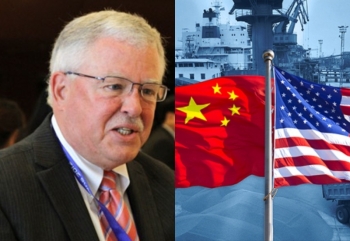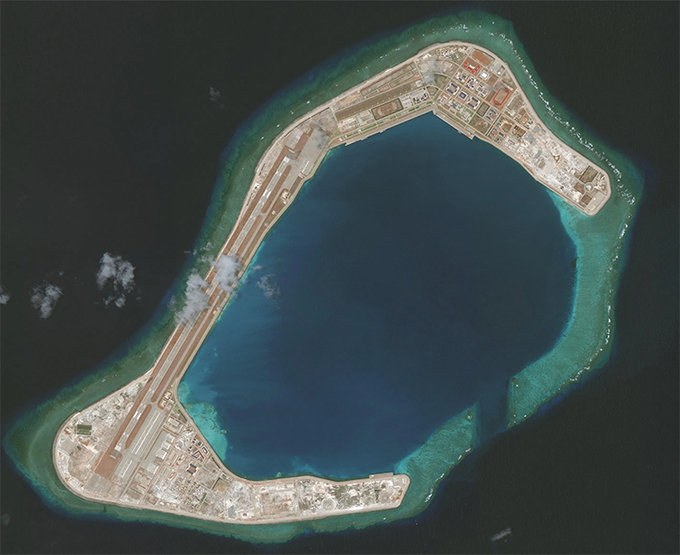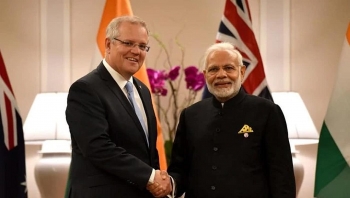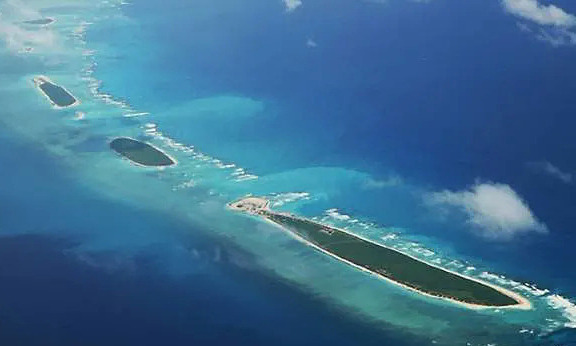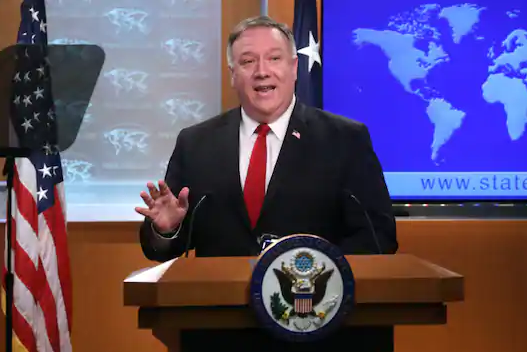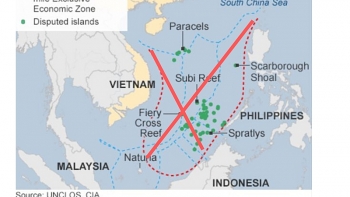PCA Ruling: China's claims of nine dashed line in the South China Sea is illegal
Last weekend (June 7), Times of India ran an article titled “PCA Ruling on the Chinese claims of sovereignty in the South China Sea” by SD Pradhan, Chairman of India's Joint Intelligence Committee. The article reminds the ruling of PCA in 2016, which was considered “a historic decision under the United Nations Convention on the Laws of Seas (UNCLOS) as it covered several issues that form the basis of the long dispute in the South China Sea (SCS).”
Five significant aspects of the ruling
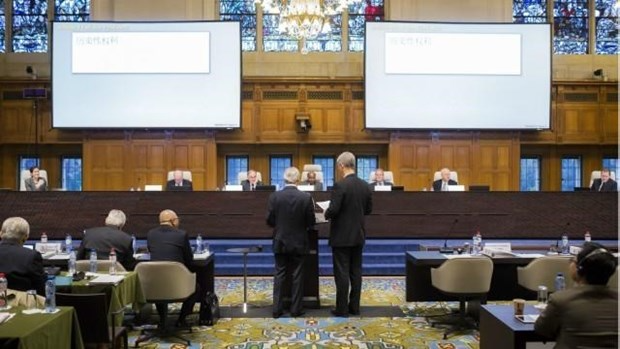 |
| At the court (Source: BBC) |
The article cited five points that made clear about unreasonable China’s claims of China on the South China Sea.
First, the Ruling asserted that Beijing’s claims on the entire area in the nine-dashed line in the South China Sea (SCS) are illegal. Otherwise, the Ruling stated that UNCLOS “comprehensively” governs the parties’ respective rights to maritime areas in the SCS and that China’s nine-dashed line claim of “historic rights” to the waters of the SCS is invalid.
Second, it clarified the definition of the so-called “islands” that none of the Spratlys - including Itu Aba, Thitu, Spratly Islands, Northeast Cay, and Southwest Cay- are legally islands.
As such, they are entitled only to 12-nautical mile (22-km) territorial seas under UNCLOS, to which China and the Philippines are signatories. The Court also agreed with the Philippines that Johnson Reef, Cuarteron Reef, and Fiery Cross Reef are rocks. Hughes Reef and Mischief Reef were found to be below water at high-tide, generating no maritime entitlements. The Court also ruled that Second Thomas Shoal and Reed Bank are submerged and belong to the Philippines’ continental shelf thereby denying any right to China there.
Third, significantly the Court also ruled against the Chinese ‘land-reclamation activity’ stating that this had caused ‘severe harm to the coral reef environment’. This imposed a stricture on China over its land reclamation activity.
Fourth, the Tribunal confirmed that China violated Philippines’ rights in seizing Scarborough Shoal, the 2012 incident that drove Manila to file a suit.
Fifth, it pointed out that China had breached the Philippines' sovereign rights by exploring for oil and gas near the Reed Bank. While Vietnam did no go to the PCA on the issue of placement of oil rig in its EEZ, by implication it is clear that in that case too China had breached the Vietnamese sovereign rights.
Beijing’s reaction: Consistently reject the judgment, increase aggression in the South China Sea
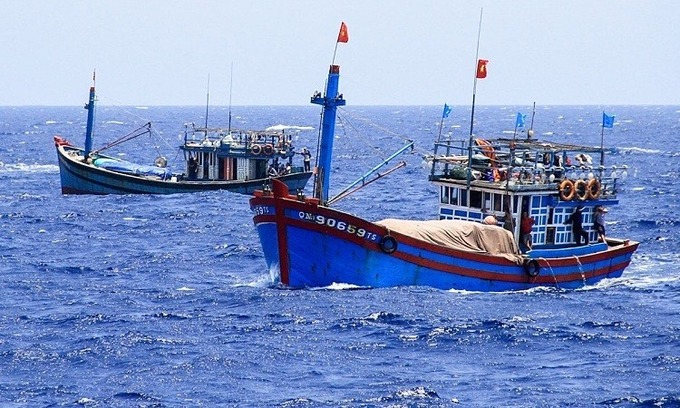 |
| Vietnamese fishing boats operate in the Paracel Islands, May 2014. Photo by VnExpress/Nguyen Dong. |
China has been consistently criticized and rejected the Tribunal’s judgment despite the urge of the international community and calls it “null and void”, affirming that no binding force can impose the verdict upon the country.
“China challenged the jurisdiction of the Tribunal over the submissions made by the Philippines. Third, China blamed the Hon’ble Judges for impartiality by alleging that out of five Judges, four were under the influence of Japan. Such criticism from a country that was a signatory to UNCLOS was infelicitous,” the article wrote.
The article assessed that Beijing adopted several methods to bring SCS under its control, including the creation of domestic laws and administrative units for the disputed region to assert is claims, harassing the fishermen even in the EEZs of other nations, objecting the drilling operations by other nations, applying economic carrots and sticks to manage other claimants, etc.
Beijing also increased its aggression on the South China Sea in some notable incidents in the nautical area such as the Vietnamese fishing vessel, with eight fishermen onboard, was fishing near the Paracel Islands in April when it was rammed and sunk by the Chinese vessel, earlier Chinese vessels had encroached on the vicinity of the Natuna islands which led to a standoff between China and Indonesia. A long standoff between the Chinese and Malaysian vessels took place when the Chinese vessels tried to stop Malaysian drilling operations off the Malaysian coast. A Chinese government survey vessel, the Haiyang Dizhi 8, had been operating close to a drillship under contract to Malaysian state oil company Petronas. In February 2020, China warship targeted the BRP Conrado Yap of the Philippines near the Malampaya gas field in "the West Philippine Sea".
International consensus against bullying tactics of China
To conclude the article, the author reaffirmed that the verdict has justified the position taken by other countries like US, Japan, Australia and India as also others using the South China Sea.
"The nine-dashed line has been declared illegal. Vietnam, Indonesia, Malaysia, and the US have approached the UN against Chinese claims. The Philippines had also criticized the sinking of the Vietnamese boat. It has also suspended the termination of the agreement with the US on the US forces visiting the Philippines “in the light of political and other developments in the region". India, Japan, and Australia among others have also favored compliance of the Ruling", according to the author.
The consensus is building against the bullying tactics of China and its claims. As a result, he calls for an establishment of a coalition including the International Community and other claimants to compel China to follow the PCA Ruling and UNCLOS.
SD Pradhan
SD Pradhan has served as chairman of India's Joint Intelligence Committee. He has also been the country's deputy national security adviser. He was chairman of the Task Force on Intelligence Mechanism (2008-2010), which was constituted to review the functioning of the intelligence agencies. He has taught at the departments of defence studies and history at the Punjabi University, Patiala. He was also a visiting professor at the University of Illinois, US, in the department of arms control and disarmament studies. The ministry of defence had utilized his services for the preparation of official accounts of the 1971 war and the counterinsurgency operations in the northeast. In the JIC/National Security Council secretariat, he was closely involved with the preparation of the reports of the Kargil Review Committee and the Group of Ministers on national security as also with the implementation of their recommendations. His publications include two books and several articles. |
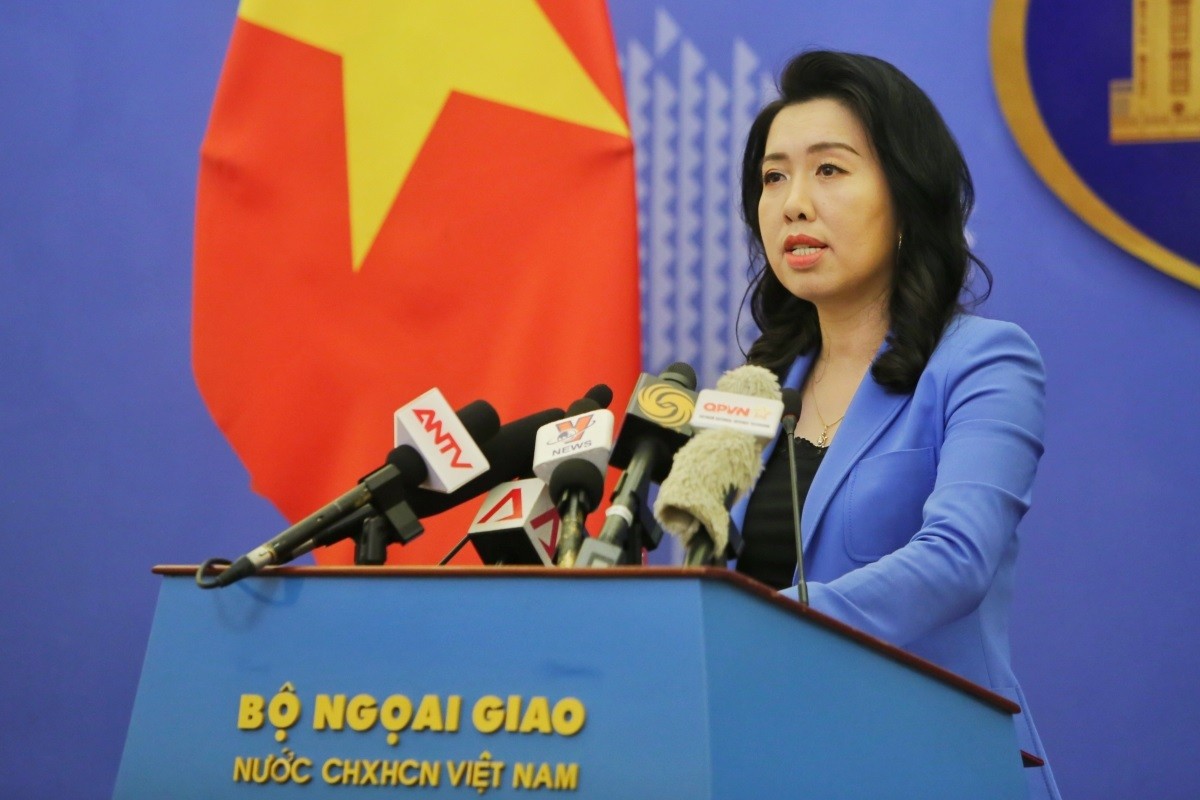 Seas and islands
Seas and islands
Vietnam Demands China Respect The Country's Sovereignty in East Sea
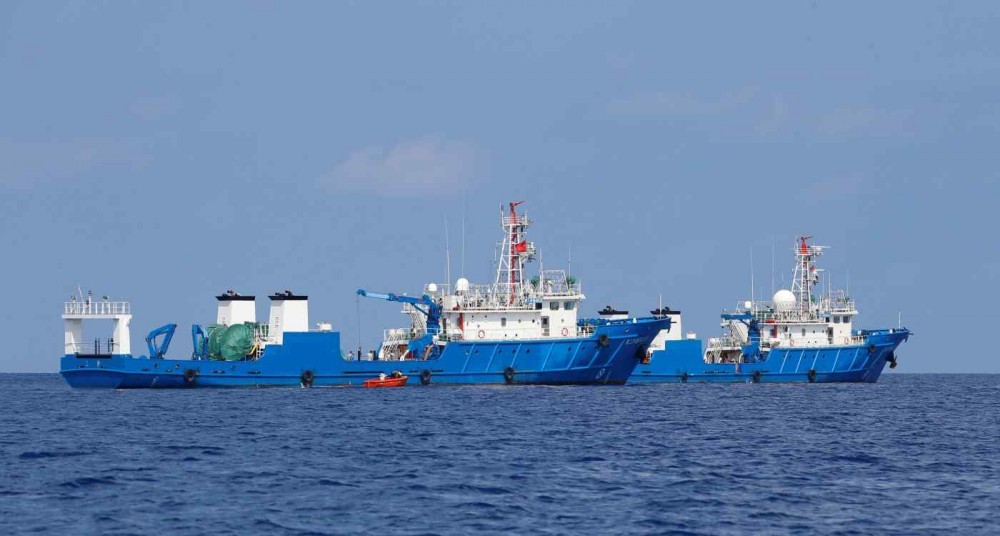 Focus
Focus
Promoting Substantive And Effective Code of Conduct in The South China Sea
Recommended
 Seas and islands
Seas and islands
Vietnam Endorses Common Voice on Ocean Jurisdiction
 Seas and islands
Seas and islands
Dialogue as Key to Settling Disputes and Advancing Law of the Sea
 Seas and islands
Seas and islands
RoK Navy Ship Pays Friendly Visit to Da Nang City
 Seas and islands
Seas and islands
Naval Region 5 Promotes Reading Culture, Fosters Patriotism
 Seas and islands
Seas and islands
Coast Guard Region 2 Command Hosts Philippine Coast Counterpart
 Seas and islands
Seas and islands
Vietnam - Thailand Navy: Coordination to Well Address Problems at Sea
 Seas and islands
Seas and islands
Honoring the Fallen: Incense Offering for the 37th Anniversary of Gac Ma
 Seas and islands
Seas and islands

